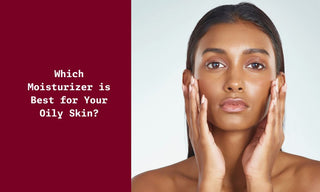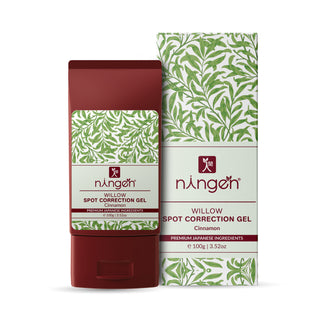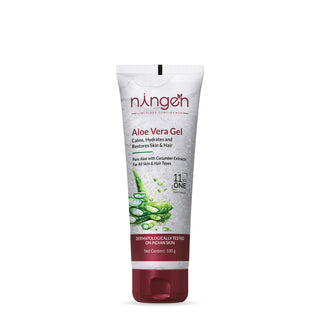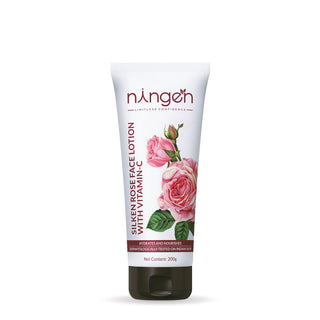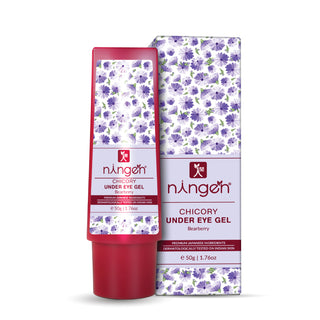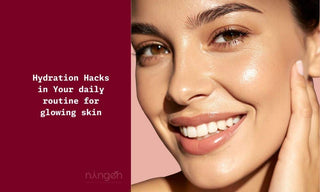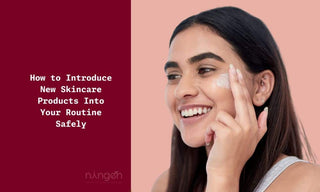Hey there, oily-skin fighters! We understand the struggle of finding the ideal moisturizer for oily skin. One moment, your face is a shiny mess, and the next, it feels parched from over-cleansing. But don't worry, we’re here to help! Skipping moisturizer isn’t the solution; the key is to know which moisturizer is best for your oily skin? You deserve hydration without the greasy shine. If you are tired of dealing with midday slickness and want a fresh-faced glow, you’re in the right place. In this article, we’ll explore the best moisturizers tailored specifically for oily skin, ensuring your complexion stays happy and balanced throughout the day. So, let’s embark on this journey to find your perfect match!
In This Article;
- What is Oily Skin?
- Causes of Oily Skin
- Importance of Moisturizing Oily Skin
- Key Ingredients to Look for in Moisturizers for Oily Skin
- Daily Skincare Routine for Oily Skin
- The Bottom Line
- TL;DR(Too Long; Didn"t Read)
- Frequently Asked Questions
What is Oily Skin?
Oily skin occurs when sebaceous glands overproduce sebum, resulting in a shiny and greasy appearance. This excess oil can cause enlarged pores and a rougher skin texture. While sebum plays a crucial role in maintaining skin health and protecting its barrier, an overabundance can lead to a perpetually oily look. It's important to differentiate oily skin from combination skin, where only the T-zone (forehead, nose, and chin) is oily, while other areas may be normal or dry. Understanding this distinction is key to finding the right skincare products and routines for your specific skin type.
Causes of Oily Skin
Several factors contribute to oily skin, including genetics, hormonal fluctuations, diet, and environmental conditions. If oily skin is common in your family, it may be a genetic trait. Hormonal changes during puberty, pregnancy, or conditions like polycystic ovary syndrome (PCOS) can increase sebum production. Additionally, external elements such as humidity, heat, and inappropriate use of skincare products can worsen an oily complexion. With a thorough understanding of these causes, you can be better equipped to choose the right treatment and moisturizer for your oily skin.
Common Concerns for Oily Skin
Individuals with oily skin encounter specific challenges that can complicate their skincare routine. Frequent acne breakouts occur due to clogged pores, and while many seek products to reduce oil, these can be overly harsh, resulting in sensitivity. Additionally, concerns like uneven skin tone, dullness, and the need for hydration without further oil production create a complex balancing act. Managing oil removal while safeguarding the skin barrier is a persistent struggle, making it essential to choose the right products that address these issues without compromising overall skin health. At last, the goal is to achieve a fresh, radiant complexion that feels comfortable and well-hydrated.
Importance of Moisturizing Oily Skin
While it may seem counterintuitive, moisturizing is crucial for the health of oily skin. Even if your skin appears shiny, it can still suffer from dehydration, triggering an increase in oil production as a reaction. The appropriate moisturizer can aid in balancing oil levels while ensuring adequate hydration.
Importance of Moisturizing Oily Skin:
- Strengthens Skin Barrier: A quality moisturizer reinforces the skin's barrier, keeping irritants out while locking in moisture.
- Controls Oil Production: By ensuring the skin remains hydrated, moisturizers help curtail excessive oil production.
- Aids Acne-Prone Skin: Formulations with ingredients such as salicylic acid are effective in managing acne.
- Enhances Skin Texture: Consistent moisturizing can improve skin smoothness, leading to a softer and more uniform complexion.
- Provides a Matte Finish: Numerous oily skin-targeted products offer a matte look, reducing unwanted shine throughout the day.
In the following section, we will delve into key ingredients ideal for moisturizers designed for oily skin. Discover the advantages of actives like hyaluronic acid and salicylic acid, along with why lightweight formulas are essential for enduring hydration without a greasy residue.
Key Ingredients to Look for in Moisturizers for Oily Skin
- Hyaluronic Acid: Offers lightweight hydration by drawing moisture to the skin without introducing any additional oil.
- Salicylic Acid: Aids in exfoliating and clearing blocked pores, thereby minimizing the chances of acne breakouts.
- Niacinamide (Vitamin B3): Balances sebum production, diminishes inflammation, and enhances skin texture.
- Glycerin: A humectant that brings moisture into the skin, ensuring hydration without a greasy feel.
- Aloe Vera: Calms and hydrates the skin while delivering anti-inflammatory advantages.
- Tea Tree Oil: Renowned for its antibacterial qualities, it assists in managing oil and preventing acne.
- Lightweight Oils (e.g., Jojoba Oil): Mimics your skin's natural sebum, aiding in stabilizing oil production..
- Green Tea Extract: Packed with antioxidants, it helps alleviate inflammation and manage excess oil.
- Lactic Acid: Gently exfoliates and moisturizes the skin, fostering a smoother texture.
- Willow Bark Extract: A natural source of salicylic acid, it helps exfoliate and clear blocked pores.
Choosing the Right Moisturizer for Oily Skin
Choosing the Best Moisturizer for Oily Skin in India can truly transform your skincare routine. Here are some pointers to assist you in finding the ideal one:
- Opt for Lightweight Formulations: Select gel-based or water-based moisturizers that deliver hydration without leaving a greasy residue.
- Look for Non-Comedogenic Labels: Make sure the moisturizer is non-comedogenic, indicating that it won't block your pores.
- Select Oil-Free Products: Go for oil-free moisturizers to avoid adding unnecessary oil to your complexion.
- Seek Hydrating Ingredients: Ingredients such as hyaluronic acid and glycerin help draw moisture into the skin without making it oily.
- Include Exfoliating Components: Salicylic acid and willow bark extract can aid in keeping your pores clear and minimizing breakouts. 6.
- Support Oil Regulation: Incorporate niacinamide and lightweight oils like jojoba to help balance sebum production.
- Incorporate Soothing Elements: Aloe vera and green tea extract provide soothing and anti-inflammatory properties, helping to keep your skin calm.
- Avoid Heavy Emollients: Stay away from rich, creamy moisturizers that may feel heavy and greasy on the skin. By keeping these factors in mind, you can discover the right moisturizer for your oily skin, the one that hydrates your skin, controls oil levels, and helps prevent breakouts.
Remember, the perfect moisturizer can significantly enhance your journey to achieving a balanced and radiant complexion.
Daily Skincare Routine for Oily Skin
Finding India's Best Moisturizer for Oily Skin is the initial step to pampering your skin with the care it deserves. Then the subsequent step is to develop a consistent skincare routine to effectively manage oily skin. Here’s a comprehensive step-by-step guide to assist you in attaining a balanced and healthy complexion:
Morning Routine:
Cleanser: Begin with a mild foaming or gel-based cleanser designed to eliminate excess oil and impurities without overly drying your skin.
Toner: Use a toner infused with salicylic acid or green tea to aid in regulating oil production and reducing the appearance of pores
Serum: Opt for a lightweight serum containing niacinamide to help control sebum levels and enhance skin texture.
Moisturizer: Choose an oil-free, non-comedogenic moisturizer packed with hydrating elements such as hyaluronic acid or glycerin.
Sunscreen: Conclude your morning routine with a broad-spectrum, oil-free sunscreen (SPF 30 or above) to shield your skin while minimizing shine.
Evening Routine:
Cleanser: Clean your face with the same gentle foaming or gel-based cleanser to thoroughly remove makeup, oil, and impurities gathered throughout the day.
Exfoliant (2-3 times a week): Utilize a chemical exfoliant featuring salicylic acid or glycolic acid to clear clogged pores and avert breakouts.
Toner: Apply the same toner from your morning routine to restore balance to your skin post-cleansing.
Treatment: Incorporate any specific treatments, such as benzoyl peroxide for targeting acne spots or retinoids to encourage cell turnover.
Serum: Apply a serum enriched with antioxidants like vitamin C to brighten and safeguard your skin.
Moisturizer: Conclude your routine with your lightweight, oil-free moisturizer to ensure hydration overnight.
Weekly Additions:
Clay Mask (1-2 times a week):
Use a clay mask to absorb surplus oil and purify your skin effectively.
Hydrating Mask (1 time a week):
Implement a hydrating mask with soothing ingredients like aloe vera to refresh and moisturize your skin.
By adhering to this daily skincare routine customized for oily skin, you can efficiently regulate oil production, minimize breakouts, and maintain a healthy, balanced complexion. Managing oily skin doesn’t have to be a complicated endeavor. With the right moisturizer and a steadfast skincare regimen, you can keep excess oil in check and prevent breakouts, all while enjoying a radiant, healthy complexion.
Remember, hydration plays a vital role – even for those with oily skin. Therefore, seek lightweight, non-comedogenic products that hydrate without adding unwelcome shine. Furthermore, by incorporating beneficial components like hyaluronic acid, salicylic acid, and niacinamide, you can effectively address common concerns associated with oily skin. Stay committed to your routine, and your skin will reward you with a vibrant, glowing appearance every day. Embrace your quest to find the perfect moisturizer for your oily skin and relish the confidence that comes from well-maintained skin!
Check out our recommended products below to provide moisturization for oily skin.
The Bottom Line:
In Conclusion, Managing oily skin need not be an overwhelming challenge. With the appropriate moisturizer and a reliable skincare regimen, you can effectively regulate excess oil, avert breakouts, and achieve a harmonious, healthy complexion. However, it's important to keep in mind that hydration is essential—even for those with oily skin. So you should seek out lightweight, non-comedogenic products that provide moisture without contributing to unwanted shine.
Incorporating effective ingredients like hyaluronic acid, salicylic acid, and niacinamide will help you address typical oily skin issues successfully. Remain committed to your routine, and your skin will respond with a vibrant, glowing look daily. Embrace your pursuit of the ideal moisturizer and revel in the confidence that arises from well-maintained skin! Thank you for taking the time to read our article on "<strong>Which Moisturizer is Best for Your Oily Skin?" We hope you found it informative and valuable for your skincare journey.
“Hydrate, don't hesitate – even oily skin needs love!"
Quick view
Finding India's Best Moisturizers for Oily Skin is essential in order to achieve a well-balanced and healthy complexion. Oily skin, which is the result of hyperactive sebaceous glands, typically leads to a shiny look and enlarged pores. Important ingredients such as hyaluronic acid, salicylic acid, and niacinamide can assist in regulating oil production and reducing breakouts. Thus, you should go for lightweight, non-comedogenic, and oil-free products to maintain hydration without increasing shine. Also, you should commit to a regular skincare routine that incorporates gentle cleansing, toning, and moisturizing, ensuring your skin remains content and radiant.
Frequently Asked Questions:
Q1: What Causes Oily skin?
Oily Skin is primarily caused due to overly active sebaceous glands that produce excess sebum, often impacted by various factors, including influences hormonal changes, dietary habits, and environmental conditions.
Q2: Which ingredients should I seek in a moisturizer for oily skin?</strong>
You should seek ingredients such as hyaluronic acid, salicylic acid, niacinamide, glycerin, aloe vera, tea tree oil, lightweight oils, green tea extract, lactic acid, and willow bark extract while buying a moisturizer for oily skin.</span>
Q3: Which moisturizer is best for oily skin type?
Lightweight, gel-based, or water-based moisturizers that are both oil-free and non-comedogenic are the best moisturizers for oily skin type.
Q4: Can oily skin experience dehydration?
Indeed, oily skin can become dehydrated, which may result in increased oil production as a protective response.
Q5: How can I balance oil production in my skincare routine?
Incorporate products containing niacinamide and lightweight oils such as jojoba to help regulate the production of sebum.
Q6: How frequently should I exfoliate oily skin?
Exfoliate 2-3 times a week using chemical exfoliants, such as salicylic acid or glycolic acid, to clear pores and reduce the risk of breakouts.


